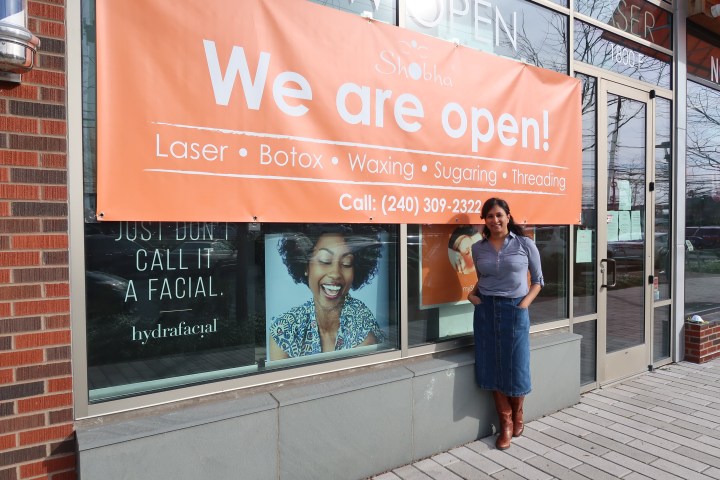
For small businesses that survived 2020 … a reset in the new year
For small businesses that survived 2020 … a reset in the new year

There are obvious changes to the way Shobha Tummala runs her business in the pandemic — temperature checks, hand-washing stations, and plexiglass dividers are now standard in her chain of hair removal salons in New York, Washington, D.C, and Maryland. Other changes are more subtle.
“We used to have a lot more retail products out,” said Tummala, “And we just said, ‘Let’s reduce how much we have out just so that it’s easier to clean more often.’”
Tummala had to close three of her eight “Shobha” locations, which offer services like waxing, threading, laser hair removal, and facials. She’s considering closing another in Rockville, Maryland. In 2020, she said the salons pulled in only about 30% as much revenue as in the year before.
“We have a much better handle on costs than we ever have,” she said. “We literally don’t spend $1 without knowing what it’s for and what it was.”
Many small businesses had to make tough adjustments in 2020, and, according to data from Yelp, more than 160,000 small businesses closed permanently during the pandemic. A December survey from the National Federation of Independent Business found “one-in-four small business owners reported that they will have to close their doors in the next six months if the current economic conditions don’t improve.”
With the help of a PPP loan and the store closures, Tummala said she was able to keep 90% of her staff, but now basically everyone works part time. And she’s managing the details of the business much more closely. Tummala said the pandemic has changed more than just how she runs her company.

“I think personally, what has changed for me is that my energy was so focused on giving 200%, to my business and kind of not taking care of myself. I think this last year has actually changed,” she said. Tummala wore herself out in 2020 trying to save her business and help her 2 young sons adjust to remote learning. Now, she said, she’s putting more emphasis on her mental and physical health.
“Even though it’s been a really tough year, I found a much better balance of being able to take care of myself and realizing how important that was so that I could have energy for the business and my team. I think that’s something that I’m not willing to sacrifice again,”said Tummala.
Monique Greenwood, who owns a chain of bed and breakfasts called Akwaaba, had a similar change in perspective during the pandemic. Some of her locations along the East Coast did well once they were able to re-open after lockdowns. There was a surge of business in the summer during the “Black Lives Matter” protests as people sought to support Black-owned businesses, and there was some unexpected business from family events and milestones that had to be downsized or modified due to pandemic restrictions.
“We did a ton of elopements and micro weddings,” said Greenwood, “They were booking weddings and coming two weeks later to do it.”
Greenwood posted a video on her website detailing how they were managing cleaning and social distancing, which she said helped make guests more comfortable booking. But some locations are still struggling.
“In urban environments like Washington, D.C., Philadelphia and New York, we’re slower to rebound. We’ve had some business, but our numbers are going to be way off from where we were last year,” she said. For example, she had a wave of cancellations in D.C. once people learned the presidential inauguration would be virtual, and she’s rethinking how to keep her often smaller urban locations profitable.
“It’s because we’ve had high occupancy rates that it made sense to operate them as bed and breakfasts as we have been,” said Greenwood. “But when the occupancy rates go down, then it becomes difficult.”
Several of her B&Bs are in historic homes, which are expensive to maintain, and, given the housing market, Greenwood has been wondering if she might do better renting them out as homes or even selling them. She recently sold two of her properties in New Jersey, and only one of those sales was planned.
“I wasn’t thinking in this vein, before the pandemic because I love what I do and so I never stopped to question: Is this the right thing to do right now for the business and for my life?” she said.
So this year, Greenwood said she’ll be more closely evaluating how her business interests line up with her personal health and well-being.
There’s a lot happening in the world. Through it all, Marketplace is here for you.
You rely on Marketplace to break down the world’s events and tell you how it affects you in a fact-based, approachable way. We rely on your financial support to keep making that possible.
Your donation today powers the independent journalism that you rely on. For just $5/month, you can help sustain Marketplace so we can keep reporting on the things that matter to you.












